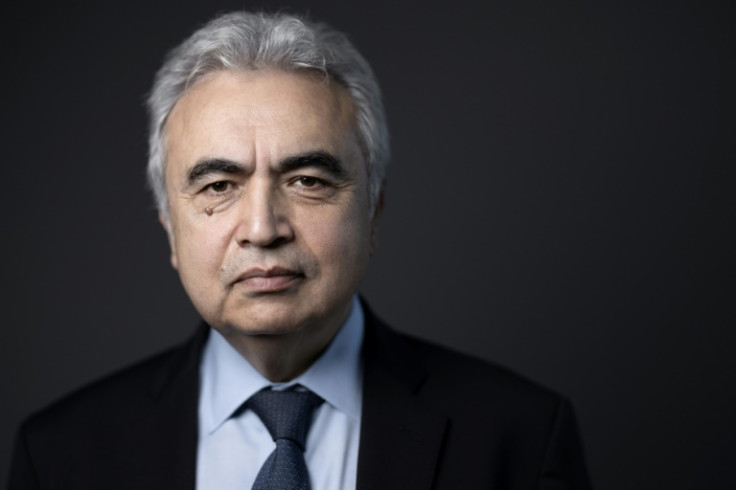Trade Barriers Can Slow Energy Transition: IEA Chief

Trade barriers can slow the world's energy transition but commerce also needs to be fair, International Energy Agency chief Fatih Birol said Wednesday, as world powers tussle over the technologies key to fighting climate change.
Clean energy is among the hot topics this week at the World Economic Forum in Davos, Switzerland, with China denouncing "barriers to green trade" and the EU voicing concerns about "trade imbalances".
"Trade barriers can well be a factor slowing down the global clean energy transitions," Birol told AFP on the sidelines of the conference in the Swiss Alpine resort.
"But the general philosophy is, fair trade is a good friend of (the) clean energy transition," he said.
China leads the world in the deployment of solar and wind energy and it is also the biggest producer of electric cars.
Fears of a trade war erupted after the European Union launched a probe into Beijing's subsidies for its electric car industry, which could lead to punitive tariffs.
But EU nations are also worried about losing business to huge energy transition subsidies in the United States, which include tax breaks for US-made electric vehicles.
Birol said China "plays a critical role when it comes to clean energy" that "provides a service to the rest of the world".
"But of course countries have to look what are the trade implications ... for their economies, whether or not this production is done in a fair way compared to other production," he added.
Chinese Premier Li Qiang told the forum on Tuesday that "discriminatory" trade measures are a threat to the world economy as "some high quality and efficient green and low carbon technologies and products cannot flow freely".
European Commission president Ursula von der Leyen told reporters that she had "clear and frank" discussions with Li on the "trade imbalances" with China.
Birol said Europe was at a "crossroads" as it was behind China in clean technology manufacturing, "and maybe soon behind the United States".
"It is time for Europe to come up with a roadmap, how we are going to revive our technological leadership in Europe, looking at the new market and technological framework conditions," he said.
The wealthiest countries also need to fund the energy transition in developing nations for the world to meet its goal of tripling renewable energy capacity by 2030.
The target was agreed at the UN's COP28 climate summit in Dubai last month, along with an agreement to work towards "transitioning away" from fossil fuels.
Financing for developing countries was "the single most important item missing" in Dubai, Birol said.
Birol said he told a minister from Azerbaijan in Davos on Tuesday that he hopes the issue will be discussed when the country hosts COP29 in Baku later this year.
The Baku talks must address the problem for it to have a "fighting chance of being a successful" climate conference, he said.
Azerbaijan disappointed climate campaigners by appointing a former state oil company executive, now ecology minister Mukhtar Babayev, as president of COP 29.
COP28 was chaired by the head of the UAE's state oil company, sparking anger among activists.
Birol said there are "legitimate" questions over appointing someone who devoted their career to fossil fuels.
"However, in my view ... we shouldn't jump" to conclusions and "give them the opportunity to prove that they deserve to be the presidents of COP and they do deliver,' he said.
In his talks with Azerbaijani officials, he added, he saw "a lot of goodwill there. Whether or not goodwill be transformed into good outcomes is another story altogether."
© Copyright AFP 2024. All rights reserved.





















